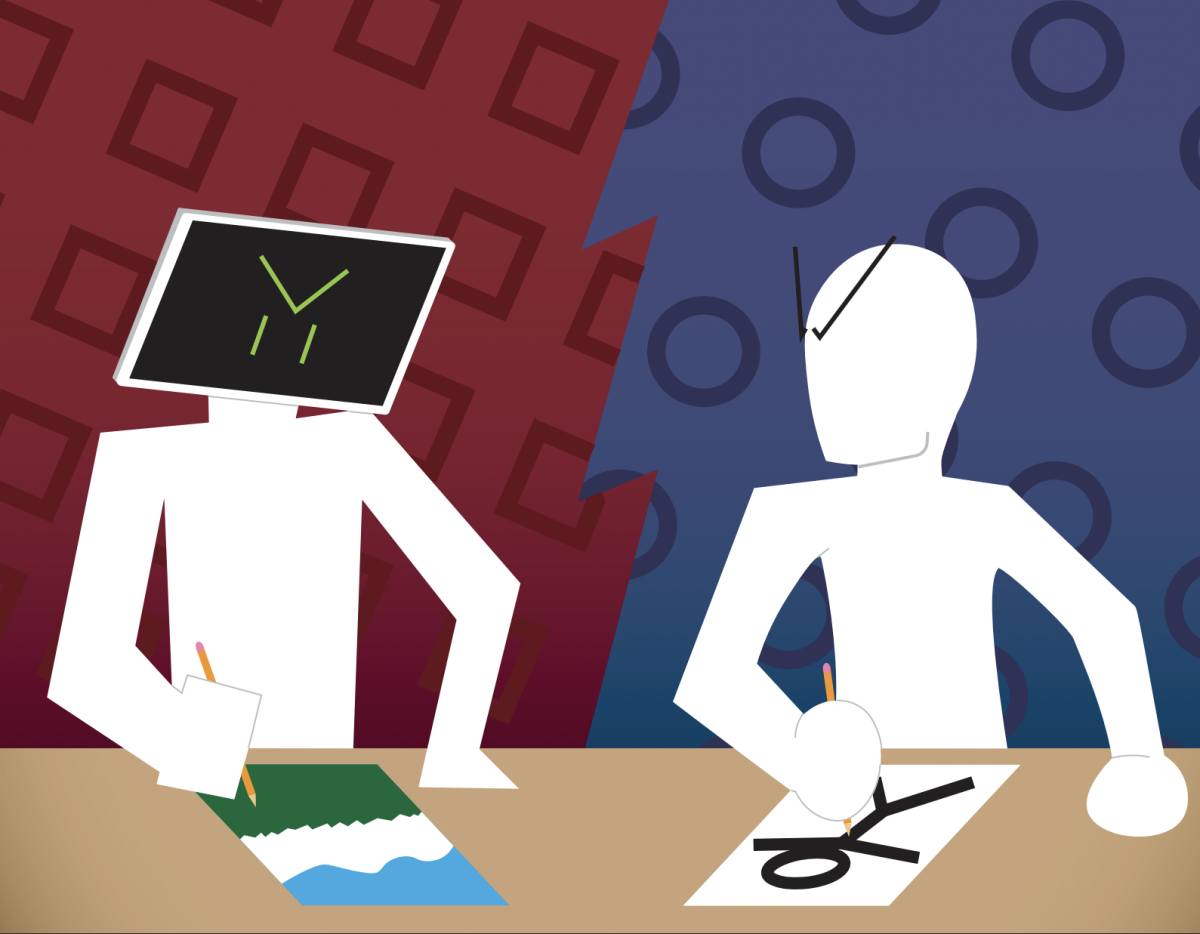A lot of students resort to cramming at the last moment when it comes to studying, since some believe it makes it easier for them to intake specific information and remember it all for the upcoming test.
Cramming is a study method where students work intensively to absorb large volumes of information in short amounts of time. It is often done by students in preparation for upcoming exams, especially just before them. Cramming involves repeatedly reading or listening to a given piece of information to memorize it in its original form, without necessarily understanding the contents of the information or relating it with anything in their knowledge pool.
Cramming has especially been proven to increase stress, with the short time period putting immense amounts of stress on the studier at hand. This can then make it harder for said student, because stress and anxiety makes it hard for their brain to intake the information they’re trying to force into their brain. Students are often forced to cram after improper time utilization or in efforts to understand information shortly before being tested.
In Commonwealth countries, cramming usually occurs during the revision week (week before exams), also known as “swotvac” or “stuvac.”
Cramming has many pros and cons. If you must cram, there is a right and wrong way to go about it. Identify the most important aspects, create a study plan, use active study strategies, take breaks and take care of yourself.
When it comes to doing it incorrectly, that could be stressing yourself out before you begin. Overthinking what you’re doing consistently, worrying too much about what lies ahead. Always focus on the present, not the future – never dwell on the past, either.
Freshman Soma Horiuchi says, “Oh yeah, all I know is cramming.” As said by other students, cramming is a common thing amongst them since a lot need it to intake information correctly. H.E. Gorst stated in his book, The Curse of Education, “As long as education is synonymous with cramming on an organized plan, it will continue to produce mediocrity.”
Cramming is not an effective study strategy because the hippocampus region of the brain may fail to move those short-term memories into long-term storage. Cramming increases our stress levels, negatively impacting our ability to concentrate and truly retain information. It also gives us a sense of false confidence.
People tend to have mixed feelings about cramming and tend to say a range of things. Whether some would say it is an effective study method, and other would say there’s no use in it because all it does is induce stress on the studier. As junior Jason Jeong says, “All it does is stress me out.” This proves that people see this method differently, and some find it effective while others don’t.
Some believe it is how peoples brains get developed, since some can find it easier to focus when cramming, while others find themselves able to intake all the information being thrown at them.
It is far easier to leave things to the last minute than start preparing for a test weeks or months ahead. But studies of memory suggest there is something else going on. In 2009, for example, Nate Kornell at the University of California, Los Angeles, found that spacing out learning was more effective than cramming for 90% of the participants who took part in one of his experiments – and yet 72% of the participants thought that cramming had been more beneficial.
Sophomore Nathan Addams says, “I do believe that the study method depends on the person.” There are also people who seem to be on the fence, who maybe have not even heard of cramming before now.
It is not confirmed which works, especially since as said before, study methods always depend on the person and how the brain develops. Some may find putting it off until just before an exam works best for them because it keeps the information in their brain and helps them retain it all for later, while others will say that all it does is keep them even more stressed which makes it harder during a test.
This probably depends on the persons anxiety levels, and if they tend to be a more anxious and worrisome person – because then the belief that they will fail alongside the stress from the short time of studying can lead to actual failure.
Senior Noelle Bates says, “I get bad testing anxiety, so you know, I get it.” As said, a lot of people get testing anxiety, and when cramming, it may convince the students brain that maybe they didn’t study enough for the test, leading to them failing it.
All in all, while it is not confirmed or seen to be leaning onto a specific side of helping people or negatively affecting them, it can only be assumed the results depend on the person.






